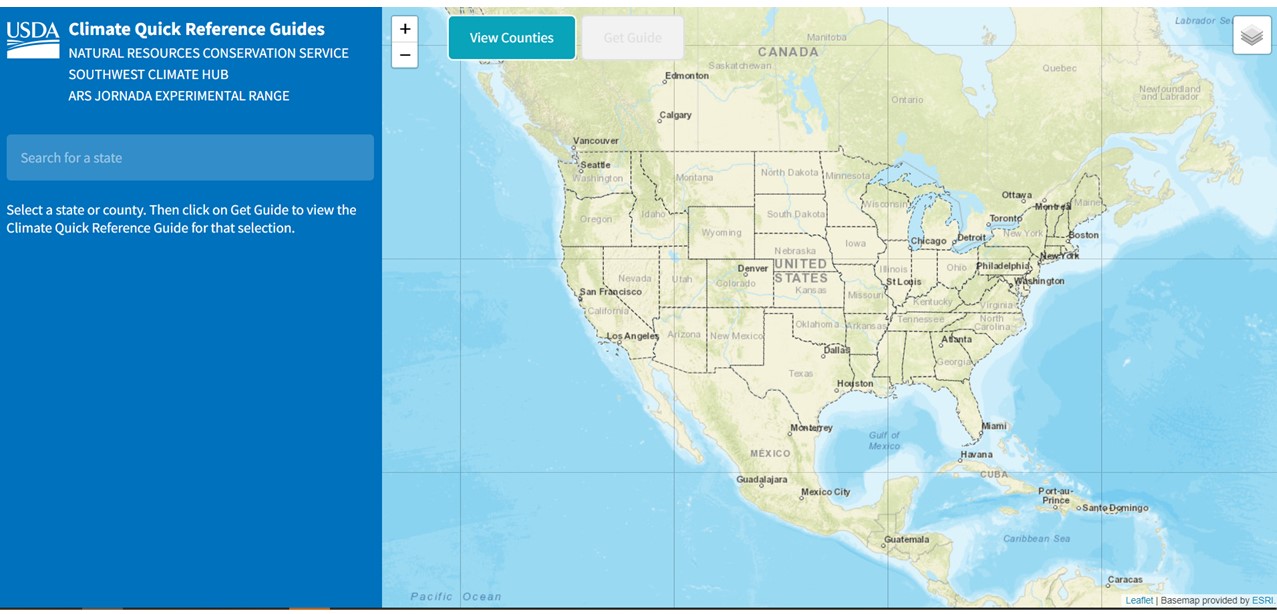In an era where information is at our fingertips, sometimes it can still be hard to find what you're looking for, especially if you want local information. That’s how a Southwest Climate Hub NRCS liaison identified a need. Where can I go to get the basic climate information for my county? There are so many excellent resources for climate change information, but not one quick way for people to know what the recent (last 30 years) and projected (mid to late century) changes are that impact agricultural production for a specific county. So, the Southwest Climate Hub and NRCS partnered together to create Climate Quick Reference Guides. The Guides can be viewed at either a State level or at a County level. With two clicks on a map, key changes in historic and projected climate most impactful to agricultural production pop up on a one-page PDF. (Note: there are some counties that do not return data due to a lack of specified data for that area, as the Guides are refined all counties will eventually have a Guide.)
The Climate Quick Reference Guides were developed from 2022 NOAA State Summaries, Risk Management Agency (RMA) data analyzed through the Southwest Climate Hub’s AgRisk Viewer, and other published climate change data. In areas where the impacts of climate change rely on more localized data, such as the Caribbean, Alaska, and the Pacific Islands a customized approach is being taken by working with local experts on the data and graphics that should be used for those Climate Quick Reference Guides. Guides in those areas will be available in 2023.
As the federal investment in mitigating and adapting to the affects of climate change continues to increase, so too must our collective understanding of the current science and information. Providing easy to digest synthesized information that federal employees, agricultural producers, NGO’s, teachers, agricultural professionals, and really anyone can use is a key goal of the USDA Climate Hubs. NRCS staff have so many opportunities to discuss changes with producers to help them adapt but understanding what those changes are is really the first step in the conversation. Often people know anecdotally what their experience has been, but layering science-based maps and graphs specific to where you live can help form tangible actions you can take.

The Climate Quick Reference Guides are one of many resources available to increase our collective climate literacy…quickly.

